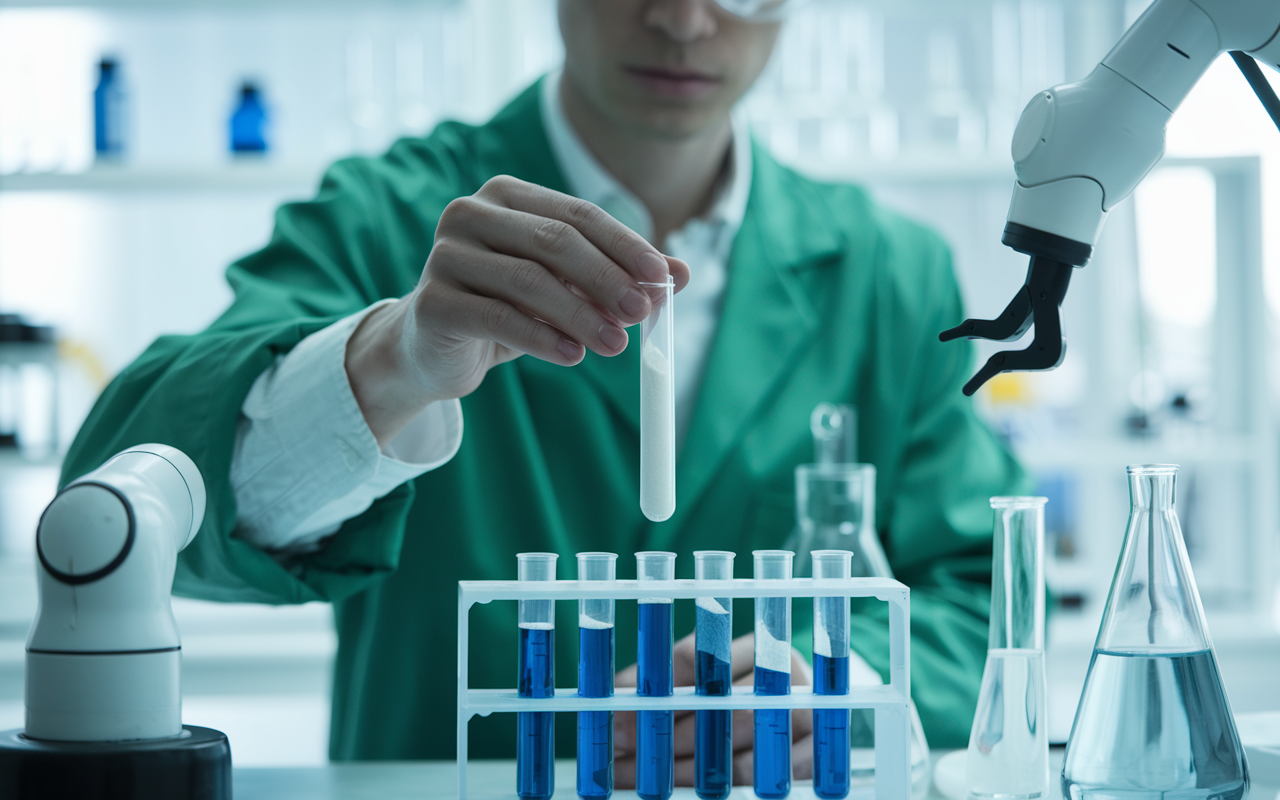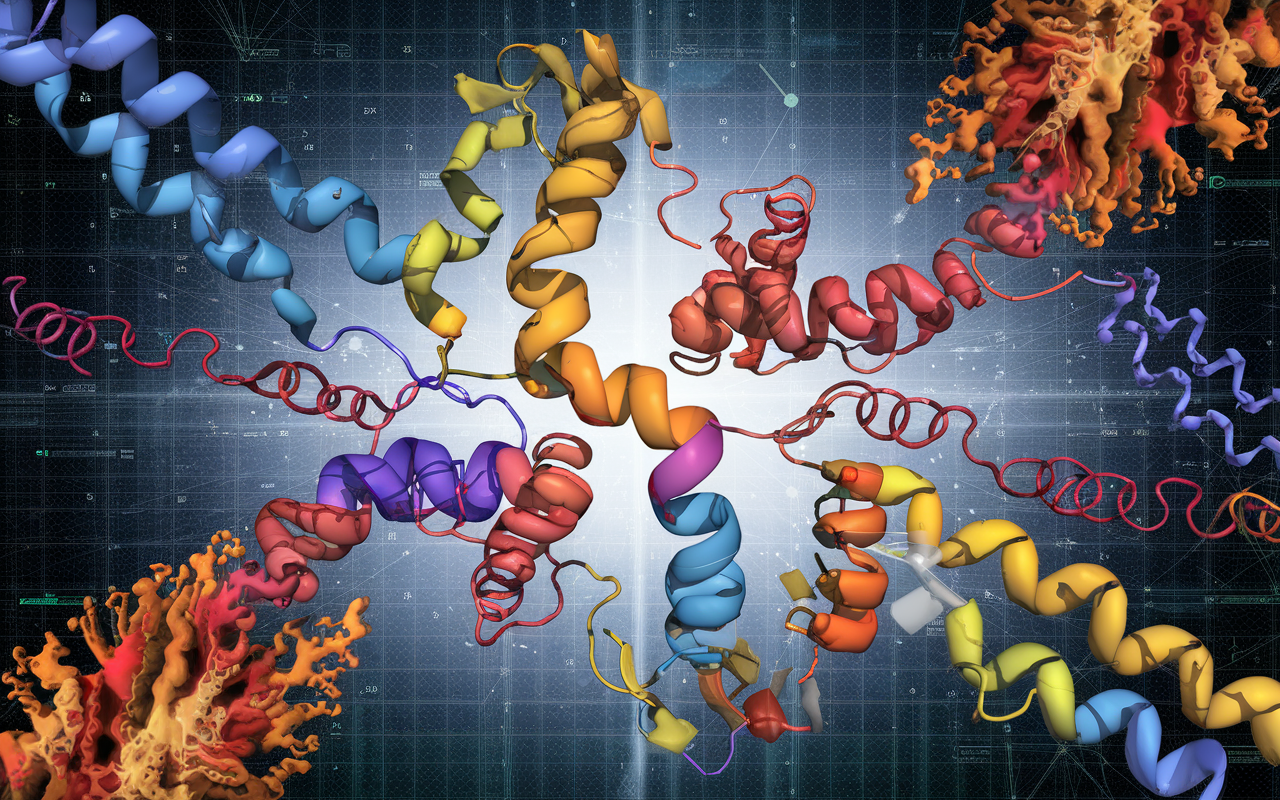Hello BioPharmaPulse Readers
Welcome to another edition of BioPharmaPulse, where we navigate the forefront of biopharmaceutical innovation together. In this issue, we delve into groundbreaking discoveries that are shaping the future of healthcare. Let's explore the advancements pushing the boundaries of what's possible in our industry.
What's in this issue:
- 🤖 Lilly's pioneering AI partnership leading the way in drug discovery.
- 🥇 Discover how AI advancements led to a Nobel Prize in Chemistry.
- 👁️ Explore promising developments in treatments for vision loss.
- 💡 Dive into how AI is transforming the biopharmaceutical industry.
Inspiration of the Day
"The art of progress is to preserve order amid change and to preserve change amid order." - Alfred North Whitehead
Latest Developments
🤖 Lilly Partners with AI Specialist Insitro to Develop Metabolic Medicines (2 minute read)

Rundown:
Eli Lilly has teamed up with Insitro, a company specializing in applying machine learning to drug discovery, in a groundbreaking partnership. Insitro will harness its AI platform to discover and develop new medicines for metabolic diseases, with a focus on conditions like nonalcoholic steatohepatitis (NASH). This collaboration represents a new paradigm in how major pharmaceutical companies and AI-driven startups can work together.
Key Points
- 🤝 Insitro retains full global rights to its research programs.
- 💰 Lilly is eligible for payments and royalties upon successful drug approvals.
- 🧪 Focus on metabolic diseases, including NASH.
- 🚀 Highlights the growing importance of AI in drug discovery.
Why it matters:
This partnership exemplifies the shifting landscape in drug development, where AI is increasingly integral. By combining Insitro's AI capabilities with Lilly's pharmaceutical expertise, there's potential to accelerate the discovery of effective treatments for complex metabolic diseases.
🥇 Nobel Prize in Chemistry Awarded for Computational Protein Prediction and Design (2 minute read)

Rundown:
David Baker, Demis Hassabis, and John Jumper have been awarded the Nobel Prize in Chemistry for their revolutionary work in using artificial intelligence to predict and design protein structures. Their efforts with AlphaFold, an AI model developed by Hassabis and Jumper, have significantly advanced our ability to understand protein folding, a critical aspect of biological research and drug development.
Key Points
- 🧬 AlphaFold predicts protein structures with unprecedented accuracy.
- 🔬 Opens vast possibilities for drug research and development.
- 🌐 Advances in computational biology are transforming the field.
- 🥇 Recognition of AI's impact on scientific research with the Nobel Prize.
Why it matters:
Protein folding has been a longstanding challenge in biology, fundamental to understanding diseases and developing new therapies. This breakthrough accelerates research, enabling scientists to design drugs more efficiently, potentially leading to faster development of treatments for various conditions.
👁️ Clearside's Eye Disease Candidate Shows Promise in Wet AMD (2 minute read)

Rundown:
Clearside Biomedical reported positive Phase 2b trial results for CLS-AX, an innovative injectable treatment for wet age-related macular degeneration (AMD). The therapy, a reformulated version of a tyrosine kinase inhibitor, maintained stable visual acuity over six months and demonstrated a favorable safety profile. This positions CLS-AX as a strong contender against current treatments like Roche's Vabysmo and Regeneron's Eylea.
Key Points
- 🌟 Achieved primary and secondary endpoints in the trial.
- 💉 Reduced injection frequency compared to standard treatments.
- 🔬 Offers higher drug concentrations and prolonged action.
- 🏥 Plans to advance into Phase 3 development.
Why it matters:
Wet AMD is a leading cause of vision loss in older adults. A therapy that reduces treatment burden while maintaining efficacy can significantly improve patients' quality of life. Clearside's advancements could reshape the therapeutic landscape for ocular diseases.
Question of the Day
🤔 What area do you believe AI will most significantly impact in biopharmaceuticals?
- 🧪 Drug discovery and development
- 🏥 Clinical trial efficiency
- 🏭 Manufacturing processes
- 📈 Marketing and sales
Trending
🔬 Illumina Unveils Accessible DNA Sequencing Machines
- Illumina introduces the MiSeq i100 and MiSeq i100 Plus, affordable and user-friendly DNA sequencers aimed at expanding access to genomic sequencing in more laboratories.
🧩 Vizgen and Ultivue Merge to Advance Spatial Biology
- The merger creates the largest private company in spatial biology, combining technologies to map the molecular makeup of cells in high detail, potentially accelerating disease research and drug development.
Industry Insight
💡 How AI is Transforming Drug Discovery
Artificial Intelligence is rapidly changing the landscape of drug development. By accelerating the prediction of protein structures and discovering new therapeutic targets, AI enables researchers to develop treatments more efficiently.
By understanding the complex folding of proteins, as demonstrated by AlphaFold, scientists can design drugs that precisely target diseases at the molecular level. This precision reduces the time and cost associated with traditional drug discovery methods.
Collaborations like the recent partnership between Eli Lilly and Insitro highlight how AI is being integrated into pharmaceutical research, potentially speeding up the discovery of effective treatments for complex conditions such as metabolic diseases.
Quick Hits
💰 Purespring Therapeutics Secures £80 Million in Series B Funding (1 minute read)
- Purespring Therapeutics raised £80 million to advance its pipeline of gene therapies targeting kidney diseases. The funding will support clinical trials expected to begin in 2026, focusing on innovative treatments for conditions with significant unmet needs.
🧑💻 Lilly Appoints First Chief AI Officer (2 minute read)
- Eli Lilly has named Thomas Fuchs as its first Chief AI Officer to direct AI initiatives across drug discovery, clinical trials, and manufacturing, signifying the company's commitment to integrating AI into its operations.
⚖️ GSK to Pay up to $2.2B to Settle Zantac Lawsuits (1 minute read)
- GSK agreed to pay up to $2.2 billion to resolve approximately 80,000 lawsuits claiming that the heartburn medication Zantac caused cancer, aiming to remove financial uncertainty associated with prolonged litigation.
🌍 Novo Nordisk Launches Initiative to Prevent Childhood Obesity (1 minute read)
- Novo Nordisk is initiating a global effort to prevent childhood obesity in disadvantaged urban communities, working with city governments and nonprofits to promote physical activity and healthy eating.
🩺 Zealand Pharma Hit with Second FDA Rejection for Hypoglycemia Drug (1 minute read)
- Zealand Pharma received a second Complete Response Letter from the FDA regarding its pediatric congenital hyperinsulinism treatment, citing issues related to a third-party manufacturing facility.
Wrap up
Thank you for joining us in this exploration of the latest breakthroughs in biopharmaceutical innovation. It's an exciting time as we witness technology and science converge to pave the way for new therapies. Your curiosity fuels the industry's progress, and we're grateful to be part of your journey. Stay inspired, stay informed, and let's continue to navigate the future of healthcare together.
Warm regards,
Elliot Reeves | BioPharmaPulse
😊 How did you like today's email?
- 😍 Loved it
- 🙂 It was OK
- 😕 Could be better
